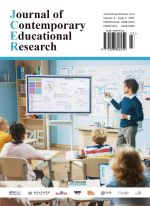Abstract
The widespread application of artificial intelligence (AI) technology in exams has significantly improved the efficiency and fairness of exams; it has also brought challenges of ethics and privacy protection. The article analyzes the fairness, transparency, and privacy protection issues caused by AI in exams and proposes strategic solutions. This article aims to provide guidance for the rational application of AI technology in exams, ensuring a balance between technological progress and ethical protection by strengthening laws and regulations, enhancing technological transparency, strengthening candidates’ privacy rights, and improving the management measures of educational examination institutions.
References
Cheng W, 2023, Difficulties and Implementation Concepts of Paperless Examination Implementation. Zhejiang Examination, (12): 13–16 + 50.
Chen W, Qi Y, 2023, Integration of Virtual Reality and GPT-based Artificial Intelligence: An Innovative Path for Educational Application Development. Computer Knowledge and Technology, 19(34): 129–131.
Liu B, 2023, Digital Transformation of Data-Driven Teaching: Mechanism, Field, and Path. Modern Educational Technology, 33(09): 16–26.
Sun L, 2023, Reflections on Enhancing the Efficiency of National Education Examination Management. Zhejiang Examination, (11): 10–13.
Zhang M, Xue S, 2023, Common Trends and Construction Focus: Global Observation of Digital Transformation in Education. China Distance Education, 43(07): 21–29.
Lu Z, 2023, Research on the Path and Strategy of Digital Transformation of Provincial Examination Institutions. Enrollment Examination Research, (03): 61–76.
Zhou J, 2023, Implementation Path of Smart Examination Service in National Education Examination. Examination Research, 19(05): 81–86.
